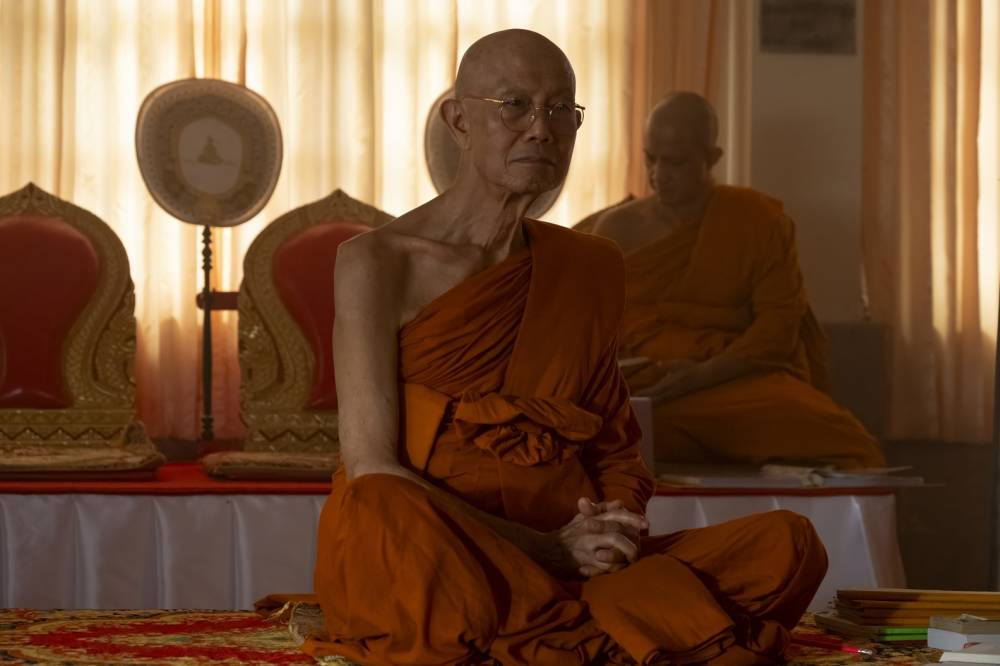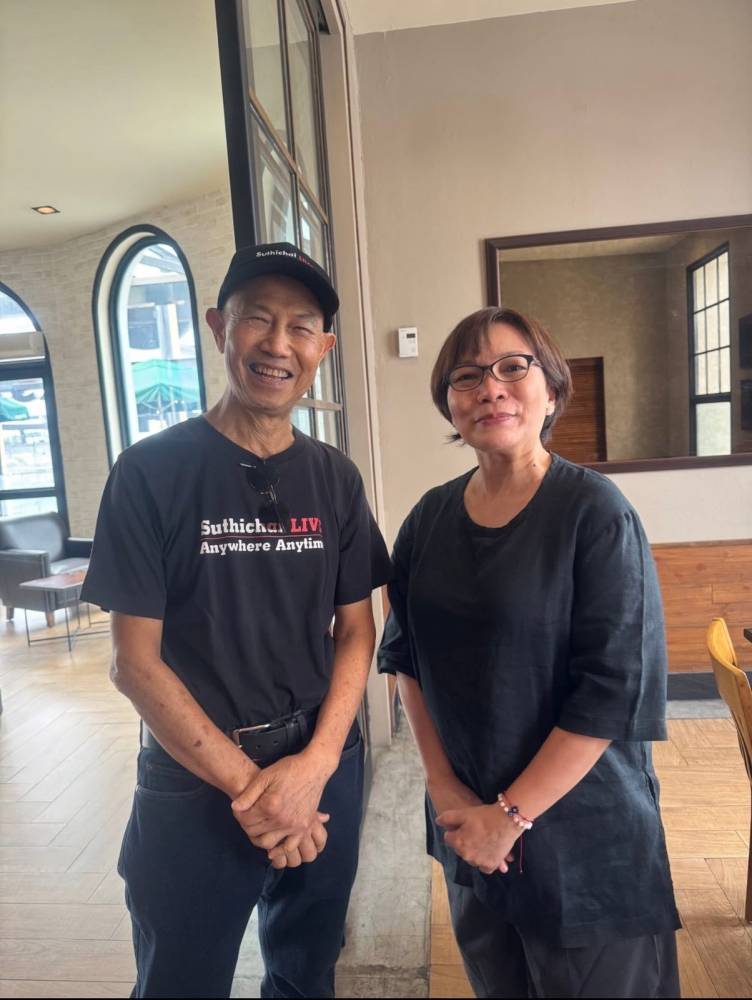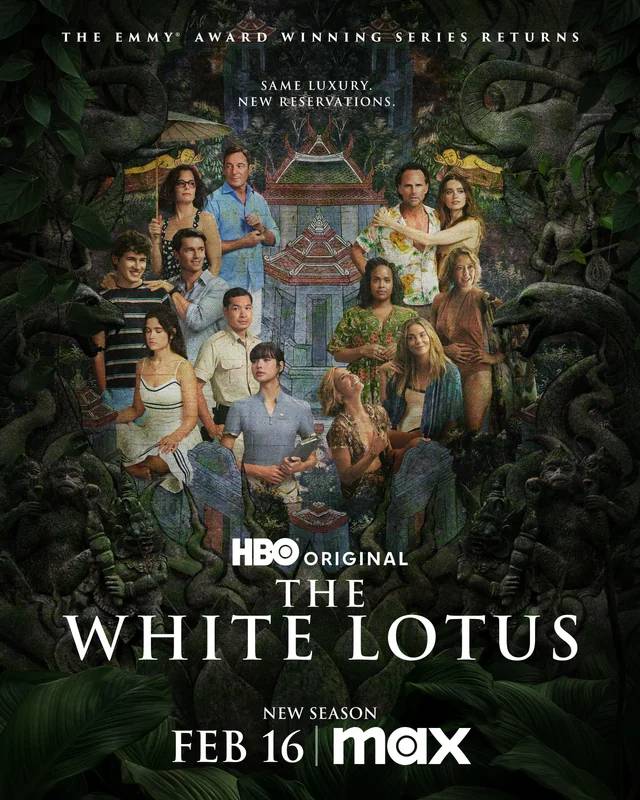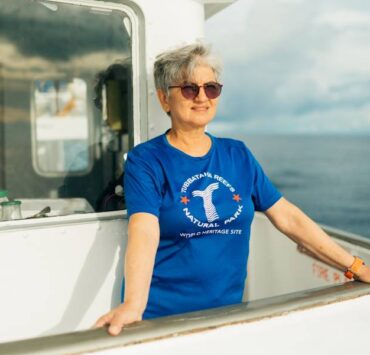Serene monk in ‘The White Lotus’ is hard-hitting journo in real life

In “The White Lotus” universe, Luang Por Teera is referred to by one of the characters in the third season of the American series as the “most famous monk in China.”
But in Thailand, the actor who plays the monk is well-known as Suthichai Yoon, a highly respected journalist who has navigated numerous changes in the media landscape.
He was also one of my bosses when I worked in Thailand for the Asia News Network from 2004 to 2016.
I met him again last month on a typically muggy afternoon in a branch of a famous American coffee chain on the eastern side of Bangkok. This is where Yoon (we call him Khun Suthichai), the 78-year-old YouTube vlogger behind “Suthichai Live,” would usually meet guests, since it’s near his house.
He went further into town, though, to a Bangkok hotel, to audition for the Max series.
“I didn’t expect to get picked,” Yoon said. But his vast experience as a TV journalist, where he has to memorize lines, helped him. About three weeks later, he was informed that he had landed the role.
The series’ creator, writer-director Mike White, couldn’t have had a more perfect pick. Despite Yoon’s lack of acting experience, the role of Luang Por Teera could have been written for him. For one, he looks like a monk in real life.
Ironically, Yoon never became a “short-term” monk, unlike the majority of young Thai men who enter the monkhood briefly, often around the age of 20, as a rite of passage and a way to earn merit for themselves and their families. At the time, he was already working in the media while attending school.
Disruptions
Yoon, whose Thai-Chinese family hails from Hat Yai in the south of Thailand, started as a proofreader before being promoted to assistant head of news at Bangkok Post. By then, he had dropped out of Chulalongkorn University’s communication arts department. Months later, he was promoted to homeland news editor—despite not having a college degree.
In 1971, he established the English paper “The Voice of the Nation,” later shortened to “The Nation,” which was wholly Thai-owned. This is where he expanded his media reach from print to TV and radio, and eventually, the internet.
He said it was “fear of losing my job” that made him resilient through the changes that have affected the media environment.
“I started as a newspaperman, and my first major disruption was shifting from a typewriter to a computer,” he recalled.

The next disruption, he continued, was shifting from print media to online. “When the internet started, I told the staff in the editorial department, if people don’t have to read us on a newspaper, if they could read it on a website, we will lose our jobs…Ninety percent said, ‘No, Khun Suthichai, you are too paranoid.’
“But 10 years after that, everything changed. We had to move from the newspaper slowly. From typewriter to computer, from computer to internet…now you have YouTube, Facebook—social media,” he said.
Yoon managed to survive, and thrive, through all these disruptions. For someone from his generation, he has wholly embraced technology, including AI.
Today, his YouTube channel (@suthichailive), where he does livestreams, interviews, and news analysis, has 1.51 million subscribers. He also has 1 million followers on Facebook, but his biggest audience is on X (@suthichai), where he has 3.1 million followers.
Unique brand
Yoon said it is essential to establish a unique brand in a media landscape where traditional and legacy journalism must compete with influencers and vloggers.
“You need to provide information that they cannot get anywhere else,” he said. “I have to be honest with the audience. I don’t mess around with facts. I make sure to uphold journalistic values of being fair and objective. If it’s my own opinion, I would tell them. I also have to be consistent, I have to be there every day at the same time. When there’s breaking news, I have to be there as well.”
He also has his share of trolls. “There are people who don’t like my opinion. It’s normal,” he said with a laugh.
On the other hand, he said, others may not agree with him, but “they trust that I’m not influenced by money or politics. They trust me because they believe I am independent. I don’t get involved with politicians. They don’t see me giving or seeking favors from politicians’ offices.”
He is popular not only among the newspaper-reading public but across classes. Once, I was in a taxi, and the driver asked where I worked. When I replied, “The Nation,” his eyes lit up and he said, “Oh! Suthichai Yoon!” It turned out that he listened to Yoon on the radio.
Yoon himself related how people from all walks of life would acknowledge him in public, from waiters to hotel doormen to even Myanmar workers who would watch his channel to get information about what’s happening in their home country.
“This is what I meant about…providing people the kind of information they cannot get anywhere else. From Cabinet members to taxi drivers, housemaids… they watch me,” he said.

Basic principles
Yoon has also earned more fans through “The White Lotus,” as the wise monk who meets with Timothy Ratliff, the patriarch of a wealthy family on vacation in Thailand, played by Jason Isaacs.
“I thought it would be quite interesting to be part of an American series. I also thought I could make a little contribution to the understanding of the Asian way of thinking as against the Western values,” he said. He added that his character provided a balance to the materialism and sex that were heavily featured in the series.
There is a similarity between Luang Por Teera, who provides spiritual guidance and talks about spiritual malaise, and Yoon, who attributes his career success to sticking to his principles.
“My basic principle or purpose has not changed. How do I make society better? It’s not just empty talk,” he said.
“When I started, I saw there were journalists taking favors from politicians, taking money from business people, and I decided I would like to be different…Once you’re known to be honest, not easily swayed by interest, you start to have credibility. And I learned that credibility is the most important thing. I want to be one of the few people who can make a difference by being honest,” he added.
The question, in the end, had to be asked: What would Luang Por Teera tell Suthichai Yoon?
“Stay honest with yourself. That’s all,” he replied with a benevolent smile that reminded me of the onscreen monk.

















